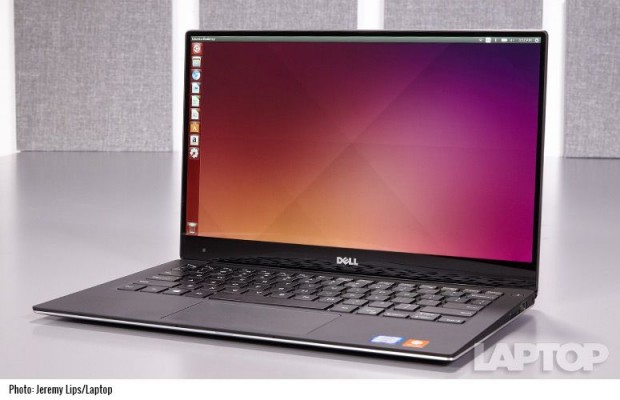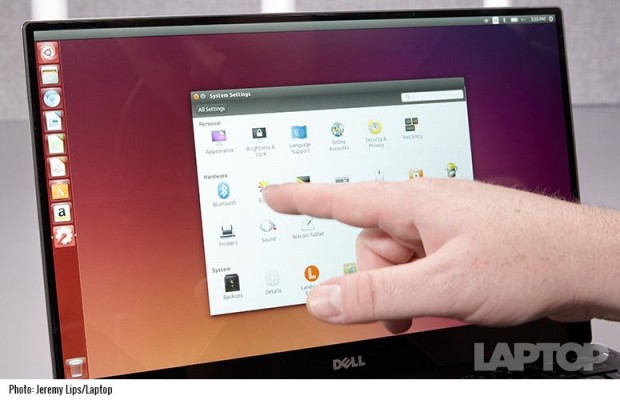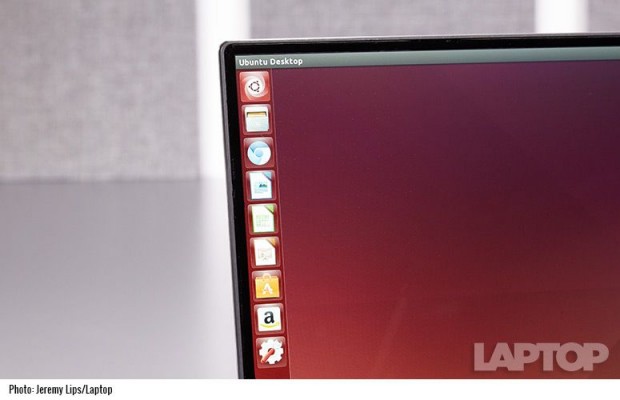Dell XPS 13 Developer Edition: Is This Linux Laptop Worth $1,500?
Thanks to its lightweight chassis, gorgeous screen and epic battery life, the Dell XPS 13 has been our favorite laptop overall for more than 18 months now. Though it's not targeted directly at business users, the laptop's industry-leading design and strong performance make it a great choice for workers, especially coders. The XPS 13 Developer Edition ($1,049 to start, $1,550 as tested) is a version of the notebook running Ubuntu Linux 14.04 that is primed for, you guessed it, developers.
Most people who want Linux on a laptop install it themselves (it’s free, after all), but the XPS 13 Developer Edition comes with it working out of the box. It’s less work to set up, but you have fewer configuration options. It’s probably not a worthwhile buy for an individual developer, but companies shopping for a fleet of employees can save some time with a computer that runs Linux right out of the box.
Hardware and Specs
The XPS 13 hasn’t changed since we saw it last, and that’s fine with me It’s the same aluminum and carbon fiber design squeezed into a 12 x 7.9 x 0.33-0.6-inch frame (with the same awkward nosecam). If you left the Developer Edition closed, no one would think it was any different from the Windows version.
Even then, the only giveaway is the orange Ubuntu sticker on the palmrest (and, of course, the fact that it runs Ubuntu at all). The Windows key is still on the keyboard
Our $1,550 configuration came with a 2.2-GHz Intel Core i7-6560U CPU, 16GB of RAM, a 512GB SSD, Iris Graphics 540 and a 3200 x 1800 touch screen display. The $1,049 base model comes with a Core i5-6200U, 8GB of RAM, Intel HD Graphics 520, 256GB SSD and a 1080p non-touch screen.
Those who want to buy a maxed out version can spend $2,350 for a Core i7-6560U CPU, 16GB of RAM, Iris Graphics 540, a 1TB SSD and a 3200 x 1080 touch screen.
Sign up to receive The Snapshot, a free special dispatch from Laptop Mag, in your inbox.
Ubuntu Linux
The XPS 13 comes with Ubuntu Linux 14.04 and quite a bit of preinstalled software. Preloaded apps include Amazon, Thunderbird email, Rhythmbox Music Player, Flash Player, AisleRiot Solitaire, Brasero Disc Burner and Empathy Internet Messaging, Transmission BitTorrent Client and the entire LibreOffice Suite.
Linux isn’t exactly a consumer-grade operating system, but if you’ve used macOS or Windows before you’ll be able to figure it out. The mix of a light and fast operating system and the XPS 13's powerful specs was more than enough for my day-to-day usage. I had 40 tabs open in Chromium browser (Linux's version of Chrome), one of which was streaming 1080p video from YouTube, without any lag.
MORE: Best Dell and Alienware Laptops
Nobody's going to buy the XPS 13 Developer Edition to use it just for web browsing. I showed the XPS 13 to our in-house developers, who suggested that the specs we had are overkill for Linux, and that they think they’d have no problems running their day-to-day software on it (though they also said they could get the tools they need on macOS and Windows. It may be different if you develop exclusively for Linux).
Is it Worth It?
The answer to this question depends on how it’s being used. If you’re in corporate IT, the last thing you want to spend your time on is installing Linux on a set of brand new laptops. However, if you’re buying a PC for yourself, there are better options.
Ubuntu is free and open source. If you want it, you can install it on any computer without any extra cost. That includes the regular Dell XPS 13, which starts at $799 (but with a Core i3 and 4GB of RAM. You’re better off springing for an $899 version for a Core i5 and 8GB of RAM whether you’re on Linux or Windows). A Windows version with identical specs to our test unit is an extra $50.
Unless you need a superpowered computer (perhaps you run lots and lots of virtual machines), you could buy a lesser model with Windows and save a ton of money. The downside, here, is that you need to install Ubuntu and all relevant drivers on your own. I suspect that most people who are doing this in the first place can figure that out. Those cheaper models also come with licenses for Windows 10 in case you want to dual boot.
Unless you’re buying this for an army of developers, I don't see the reason to buy the Developer Edition. A little bit of do-it-yourself will save you a lot of cash.
Dell XPS 13 User Guide
Andrew is a contributing writer at Laptop Mag. His main focus lies in helpful how-to guides and laptop reviews, including Asus, Microsoft Surface, Samsung Chromebook, and Dell. He has also dabbled in peripherals, including webcams and docking stations. His work has also appeared in Tom's Hardware, Tom's Guide, PCMag, Kotaku, and Complex. He fondly remembers his first computer: a Gateway that still lives in a spare room in his parents' home, albeit without an internet connection. When he’s not writing about tech, you can find him playing video games, checking social media and waiting for the next Marvel movie.



